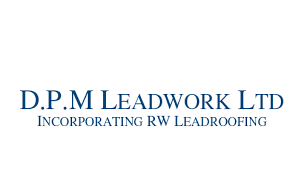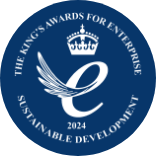Where lead sheet manufacturers can establish a green USP
The recyclability of lead sheet and its green credentials as a building material have long been known here at Midland Lead.
In fact, over this past year we’ve made a point of discussing lead’s environmental benefits with everyone from architects, housebuilders and contractors, through to developers, merchants and tradesmen.
One interesting point to come out of our discussions, however, is the fact that while lead is indeed recognised for being an environmentally friendly material to work with, some believed that certain lead sheet manufacturers offered a ‘greener’ material than others.
In reality, all lead sheet manufacturers – not just in the UK, but world-wide – use recycled lead, with lead’s recyclability arguably being its biggest claim to being green.
A trait associated with the material, rather than the manufacturer, lead can be recycled continually; used over and over with zero effect on performance.
It’s also easily recovered when buildings need to be demolished, and with its high scrap value, nothing goes to waste. More than 95% of lead used in the construction industry in Europe is recycled, and at Midland Lead, we use 100% recycled lead to fill our kettles.
With the above in mind, it’s no surprise that lead is now in the BRE Green Guide, which considers typical UK construction specifications and compares their environmental impact on a scale of A+ to E (lowest to greatest environmental impact). With a rating of A+ or A, lead is a building material that is both fit for purpose and able to improve the sustainability of construction.
As well as being highly durable when pitted against synthetic or natural weatherproofing alternatives, lead sheet also boasts one of the most energy-efficient manufacturing processes.
Due to its low melting point (327°C) during the recycling process, the manufacture of all lead sheet uses less energy compared with alternatives.
However, the one place where lead sheet manufacturers can indeed establish a green USP is within this manufacturing process. Here at Midland Lead, we work hard to run a highly energy-efficient factory. At present, our lead refinery operates under an Integrated Pollution Prevention and Control (IPPC) license, monitored by the UK Environment Agency. This means we demonstrate that we protect the environment by minimising emissions to air, land and water, by reducing energy use, promoting the use of clean technology, minimising waste production and encouraging innovation and recycling.
Midland Lead was also one of the first manufacturers to have ISO 14001 for the entire manufacturing process; a certification that ensures we fully understand and properly manage our environmental responsibilities. ISO 14001 is the best-known environmental management standard that involves certification by an external certification authority – in our case the British Standards Institution (BSI), and demonstrates our commitment to continually improving our environmental performance.
Furthermore, we’re currently supporting university research projects that are aiming to improve our understanding of the lead sheet manufacturing process in order to further improve its energy efficiency.
To see our recycling infographic in full – go to our Pinterest page.



